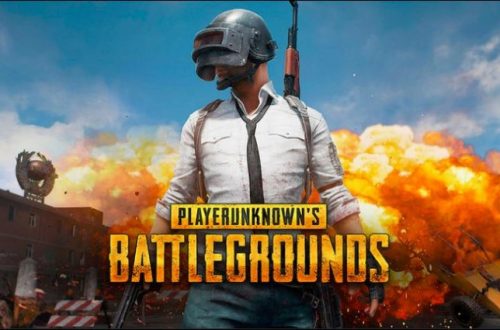Videogames have courted controversy for years, sometimes deliberately and at other times due to inaccurate media reporting. Tabloids in the United Kingdom and the United States seem to take particular issue with games, especially in the wake of tragedies when they are looking for something easy to pin the blame on that will sell papers and get those who don’t know anything about gaming into a suitable lather.
Of course, gamers knows that this is generally just hogwash, but that doesn’t change the fact that remarkable controversies have been generated just because a game happened to be in some criminal’s possession.
Then there is the other side of the coin. Some games are made especially to court controversy, often being purposefully tasteless in the hopes of selling due to the shock they generate. Similar to the “video nasties” of the 1980s, such games thrive on tabloid indignation and are often poor excuses for games that needed the controversy to sell in the first place.
Here we will be taking a look at the ten most controversial videogames of all time and what it was that made them stand out from so many others.
1. Custer’s Revenge
We start off with an oldie, but a, well, you couldn’t exactly call it a goodie but you get the drift. It’s hard to imagine a game from the Atari 2600 era being able to generate all that much controversy – outside of E.T. and the whole desert burial fiasco – but Custer’s Revenge exists to show you that some developers have lacked taste since the early days of the industry. The game was developed by a company called Mystique, which specialised in creating pornographic games on the Atari 2600. Frankly, anybody who manages to get their rocks off to the pixelated mess of graphics that most games on that console consisted of must be very determined.
Custer’s Revenge was their crass magnum opus, being the most famous game to come out of the company before it folded. It featured the player taking control of a naked General Custer and, to be blunt, his very visible erection. The aim of the game was to traverse the level, avoiding arrows and other obstacles, to get to the naked Native American woman who was tied to a cactus at the other side of the screen. Yes, it is as bad as it sounds and frankly the entire idea is unredeemable.
It generated instant controversy, with many calling for the game to be banned, while one commentator claimed that the game encouraged the gang-rape of Native American women. While these claims seem spurious at best, the game managed to sell 80,000 copies due to this attention, becoming one of the first videogames to court controversy to sell copies in the process.
2. Grand Theft Auto: San Andreas
Rockstar’s Grand Theft Auto games have been controversial from the off, largely due to the fact that they are all based around committing various kinds of crimes to get ahead. The originals stirred the tabloids due to the player’s ability to callously murder Hara Krishna groups, while later games caused frantic commentators to bemoan the increased realism and what such games could be teaching our children.

However, it was inevitably sex that caused the biggest controversy. Many had spoken about the player’s ability, should they so choose, to pick up women of the night and then kill them after the deed was done to get their money back in the later games in the series, however, it was actually a simulation game based around completely consensual – and practically fully-clothed – sex that got the media into a real frenzy.
We are, of course, talking about the infamous Hot Coffee mod. Rockstar had built Grand Theft Auto: San Andreas with a sexual mini-game that was basically a rhythm-action game. Thinking better of it, they dummied the code out but made the mistake of leaving it to be accessible in the main code. A couple of adventurous hackers later and you have tabloids screaming about the hilariously poor simulated sex to the point that the gang violence that the game contained became secondary. It was a costly mistake for Rockstar, as it lead to the game being reclassified in a number of markets, to the point where they needed to release a secondary version of the game that had the offending material completely removed.
3. Aliens: Colonial Marines
We will leave the violence and sex for a moment to look at a game that was controversial for a bunch of different reasons. Anyone who has had the misfortune of playing Aliens: Colonial Marines knows just how bad it is, but there is a story behind this terrible game that is much more intriguing than the title itself.
Published by SEGA, the game was handed over to a developer called Gearbox Software, who have achieved fame with the Borderlands games. The early demos looked amazing and it seemed like all involved were onto a winner. That’s right about when the controversy started. An anonymous whistle-blower claimed that Gearbox were taking staff off the game to focus on Borderlands, despite the fact that they were still accepting full payments from SEGA for the development of Colonial Marines. SEGA temporarily pulled the plug on the game and there were a few layoffs at Gearbox before development resumed.

Then things got really interesting. The game itself was released and looked absolutely nothing like the impressive demo that had heralded its arrival. Gamers were rightly annoyed, with a couple going so far as to sue both SEGA and Gearbox for false advertising in a class-action lawsuit. Remarkably, SEGA suggested settling for $1.25 million, basically saying that the lawsuit was right and that the product didn’t deliver. However, the suit eventually lost class-action status and Gearbox were dropped from it. Still, it is likely that the lawsuit would have resulted in a victory for those who brought it if they could only prove that all those who had purchased the game had been misled.
4. Mortal Kombat
Back to the blood and gore now, as we take a look at a series that, in some ways, revolutionised the industry, resulting in the formation of the ESRB and Nintendo relaxing its policy on not allowing blood and death games released on its consoles. Mortal Kombat is, to many, the poor man’s Street Fighter, but that isn’t to say the game is without its charms. Featuring digitised characters, massive combos and hilariously over-powered A.I., nobody could claim that the early games weren’t fun, even if they weren’t actually all that great.
But it was in the blood and fatalities that the real controversy lay. A mass media-fuelled moral panic spread around the first game, to the point where it was one of the games that was most featured during the U.S. Congressional hearing on violent videogames. Senator Joe Liebermann, in particular, seemed to have it in for the game, claiming that everything from the digitised actors through to the game’s advertising encouraged violence.
Of course, none of this could be proven and when there was a distinct lack of kids upper cutting their friends’ heads off in the wake of the game’s release the argument started to sour a little. Still, there aren’t many games that can claim to have played a part in the creation of an entire ratings system. Well, apart from this one…

5. Night Trap
The other game to be heavily featured during the previously mentioned Congressional hearings was a SEGA-CD game that would likely have floated completely under the radar in other circumstances. If you listened to the furore surrounding the game at the time you would think it contained everything from sexual assault through to child abuse and murder, such was the panic that this cheesy, B-movie, digitized videogame generated.
The reality, thankfully, is far tamer. Night Trap was a ridiculous game that saw the player having to work to protect five young women from a seemingly vampiric group called the Augers by trapping them. It’s basically a cheesy slasher flick that used live-action actors and actresses, with the whole game having its tongue very firmly planted into its cheek. The level of risqué content never gets past a couple of nightgowns and a couple of daft death scenes.
Apparently this was enough to send the media into a frenzy that resulted in the game being temporarily pulled from shelves while SEGA revised some of the content. It has since been ported to a number of other consoles and computers, while attaining a certain collector’s status based on the controversy, much more so than the quality of the game that caused it.





